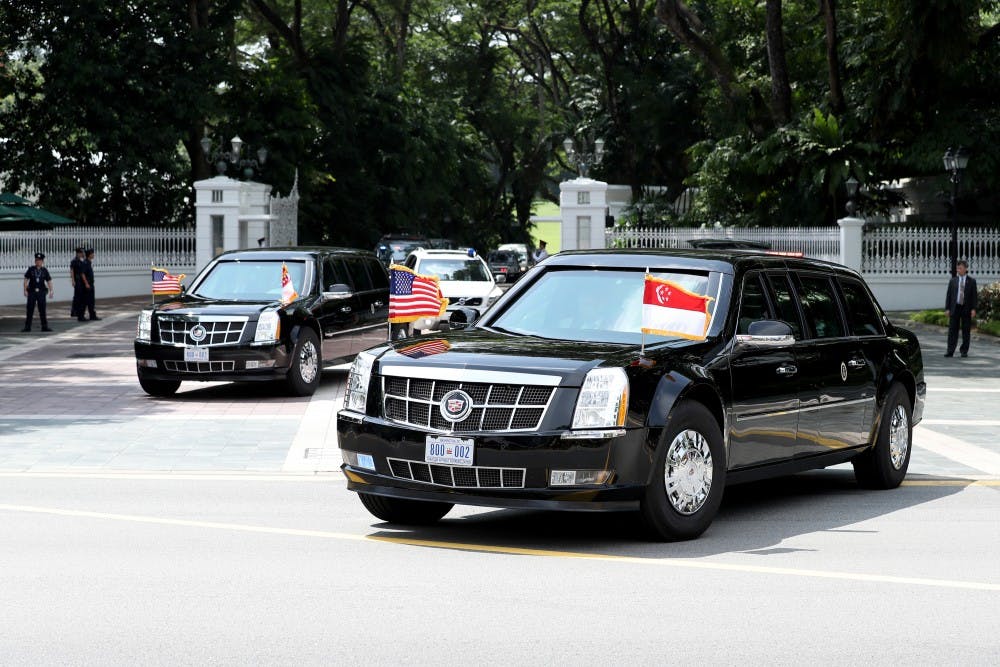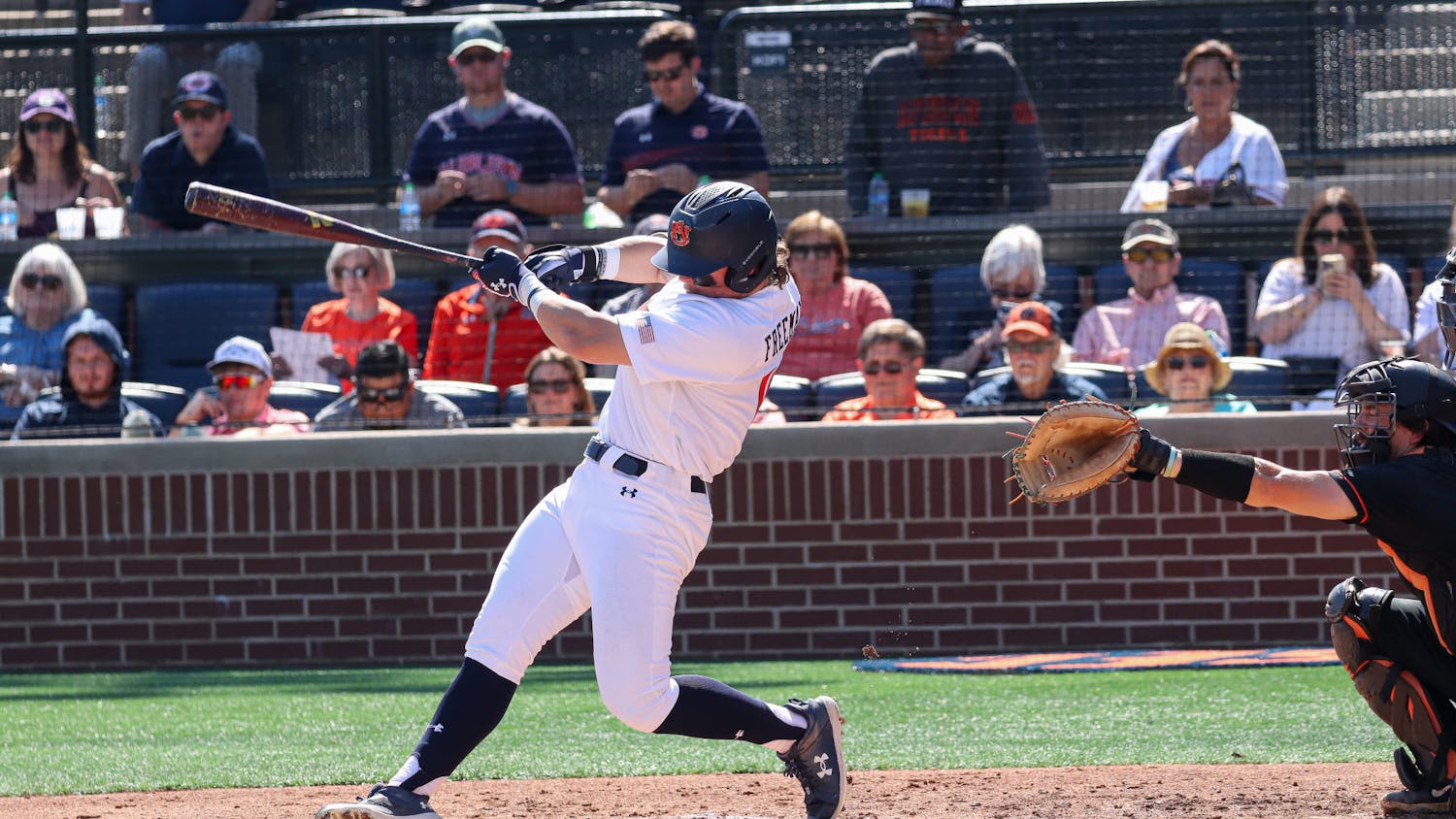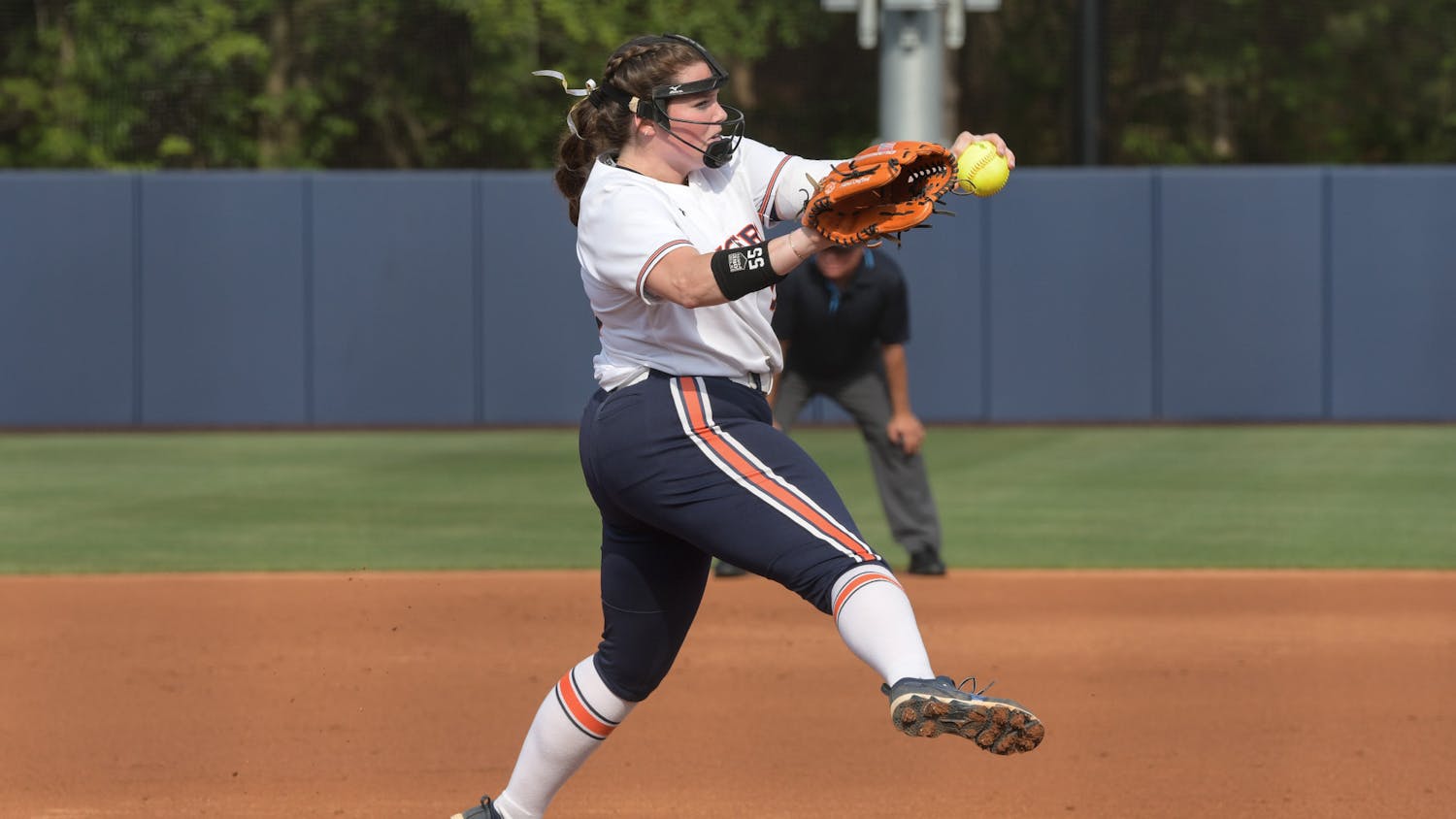SINGAPORE — The world's most powerful leader and its most reviled shook hands in front of an array of six U.S. and six North Korean flags Tuesday as President Donald Trump greeted North Korean despot Kim Jong Un before they sat down to negotiate over nuclear disarmament on the Korean Peninsula.
The two initially met in private at the Capella Singapore hotel, with only interpreters by the leaders' sides. The meeting marked one of biggest gambles of Trump's norm-smashing approach to foreign affairs, coming only months after he and Kim traded cartoonish insults and aggressive threats of nuclear Armageddon.
Experts cast grave doubt on the odds of winning a pact that would compel Kim to give up his complete arsenal of nuclear, chemical and biological weapons in short order. Some warned that the summit would legitimize his isolated nation as a nuclear state.
Others saw glimmers of hope that the young autocrat would use the opportunity to strike a deal to pull North Korea out of widespread poverty and join some of its communist neighbors that have opened their economies and given their people a measure of autonomy.
Hours before the biggest meeting of his life, Kim made a move unthinkable in the seven-decade history of North Korea's secretive, tyrannical government: He went sightseeing, in live view of hundreds of smartphone cameras.

Kim's motorcade left his heavily fortified luxury hotel shortly after 9 p.m. and headed to some of the busiest tourist destinations in downtown Singapore, including the rooftop of the Marina Bay Sands hotel and the Jubilee Bridge.
Surrounded by his entourage, a throng of bodyguards and Singapore government officials, Kim took in the sights and basked in camera flashes, greeted by a curious and buzzy crowd everywhere he went. He even posed, smiling, for a selfie snapped by Singapore's foreign minister, Vivian Balakrishnan.
By Tuesday morning, high-definition photos of Kim's jaunt about the affluent island nation and his rock-star-like welcome was on the front page in Pyongyang. The casual approach was in direct contrast to that of his father and grandfather, who were seen only in staid, staged images issued by state media.
The fanfare was a rare upstaging for Trump, who spent a quiet evening largely out of sight.
The White House said Monday that the preliminary talks "have moved more quickly than expected" and that the summit, which will include a working lunch, would wrap up in one day. It said Trump will leave Singapore on Tuesday night rather than stay until Wednesday as originally planned.
Secretary of State Mike Pompeo said Trump could go further than previous presidents in trying to make a deal, suggesting the president was willing to ease Kim's concerns about America's military posture and security guarantees to allies in Northeast Asia as long as North Korea gives up its unconventional weapons.
"We're prepared to take what will be security assurances that are different, unique than ... (what) America has been willing to provide previously," Pompeo said.
"We think this is both necessary and appropriate," he said.
Pompeo refused to say if Trump was considering withdrawing or reducing the 28,000 U.S. troops from South Korea, but his language suggested an openness to realigning the U.S. military presence and operations in the region, a long held North Korean demand.
North Korea is also eager for the United States to lower its so-called nuclear umbrella, a shield that is guaranteed under longstanding defense treaties with South Korea and Japan in event of an attack from North Korea.
The U.S. foreign policy establishment considers an easing of the U.S. regional defense posture risky and highly inadvisable as long as North Korea maintains its nuclear, chemical and biological weapons, and a million-man army that mostly is deployed near the border with South Korea.
Security experts have warned that any pullback of U.S. forces would undermine decades of postwar alliances and allow China to accelerate its efforts toward regional dominance.
Pompeo said Trump phoned South Korean President Moon Jae-in and Japanese Prime Minister Shinzo Abe on Monday to update them on the fast-moving, last-minute developments before Tuesday's summit.
Even as Pompeo floated the apparent U.S. concessions, he took a hard line on what the Trump administration would demand in return, He said economic sanctions would remain in place "until North Korea completely and verifiably eliminates its weapons-of-mass-destruction programs."
If taken at face value, the full elimination of North Korea's extensive storehouse of nuclear, chemical and biological weapons could take years, making the prospect a tough sell to Kim, given the crippling effects of Trump's "maximum pressure" sanctions program on North Korea's economy.
But Pompeo said Tuesday's summit would quickly determine if Kim was serious about his offers to denuclearize, even though the two sides have never publicly agreed on what that would entail.
"North Korea has previously confirmed to us its willingness to denuclearize and we are eager to see if those words prove sincere," he said.
Pompeo continued to downplay the possibility of an immediate accord between Trump and Kim, suggesting a successful outcome would simply be further engagement between Washington and Pyongyang.
"We are hopeful this summit will set the conditions for future fruitful talks," he said, noting "there's going to be a lot of work left to do."
The discussions "will set the framework for the hard work that will follow. We'll see how far we get, but I'm very optimistic that we'll have a successful outcome from (Tuesday's) meeting between these two leaders," he added.
It was the latest scaling back of Trump's initial soaring optimism for a speedy disarmament agreement, or a peace treaty to formally end the 1950-53 Korean War, once even suggesting that North and South Korea might want to hold a large celebration after he and Kim meet.
Instead, Pompeo made clear that the U.S. team was fully aware of the long record of failed negotiations with North Korea, usually after the U.S. side accused Pyongyang on cheating or failing to fulfill its promises to curb its nuclear or missile programs.
"The United States has been fooled before, there's no doubt about it," he said. "Many presidents previously have signed off on pieces of paper only to find out the North Koreans either didn't promise what we thought they had or actually reneged on their promises."
At his news briefing, Pompeo made no mention of human rights. Critics have urged Trump to demand that Kim reform his repressive government, which the State Department has accused of assassinating dissenters and jailing tens of thousands of prisoners to maintain its grip.
Pompeo spoke as Choe Son Hui, North Korea's vice foreign minister, and Sung Kim, a U.S. envoy to the Philippines who led previous talks with Pyongyang, held working-level talks that lasted all day.
Their discussions appeared the final opportunity for the two sides to broker joint statements or draft possible agreements that Trump and Kim can present as tangible results from their summit.
Trump called Moon and updated him on the plans during a 40-minute conversation Monday afternoon. The South Korean president has been a driving force in Trump's and Kim's abrupt turn from bellicose rhetoric to sensitive diplomacy.
Moon told Trump a successful summit would be a "great present" not only for the world, but for Trump's 72nd birthday on Thursday, Moon's spokesman, Kim Eui-kyeom, told reporters in Seoul.
In public comments Monday, Moon continued to stroke the two leaders' egos, a strategy he has used to defuse the clashes that repeatedly threatened to upend the summit.
He praised Trump and Kim for the "bold decisions" to hold a summit. "I hope it becomes a historic milestone going from war to peace," he said.
In a separate call, Abe reaffirmed that Trump will raise North Korea's past abductions of Japanese individuals, Japan's Kyodo News reported.
The Japanese prime minister told reporters in Tokyo that "Japan and the United States, along with South Korea, have completely shared and agreed on the basic policy" for Tuesday's summit.
Pompeo is scheduled to visit Seoul and Beijing after the summit concludes to brief South Korean and Chinese officials.
The White House said Trump and Kim would meet for about 15 minutes in private Tuesday morning, with only interpreters in the room, before bringing aides in for extended talks at the Capella Hotel on Sentosa Island, which lies just south of Singapore.
Their private meeting heightens the drama and unpredictability of a summit that has commanded the world's attention. No sitting American president has ever met with a North Korean leader.
Traditionally, summits between heads of state follow months of lower-level meetings in which officials work out a deal, haggling over every clause and comma, while choreographing the interactions of the top leaders in advance.
This summit was proposed only three months ago and finalized less than two weeks ago after a tense period of roller-coaster will-they-or-won't-they diplomacy.
The two sides did not put forward a public agenda as they made final preparations. Trump said Saturday that he expects to rely on his gut when he meets Kim and will know almost instantly whether they're going to make a deal.
© 2018 Los Angeles Times. Visit Los Angeles Times at www.latimes.com. Distributed by Tribune Content Agency, LLC.
Do you like this story? The Plainsman doesn't accept money from tuition or student fees, and we don't charge a subscription fee. But you can donate to support The Plainsman.




